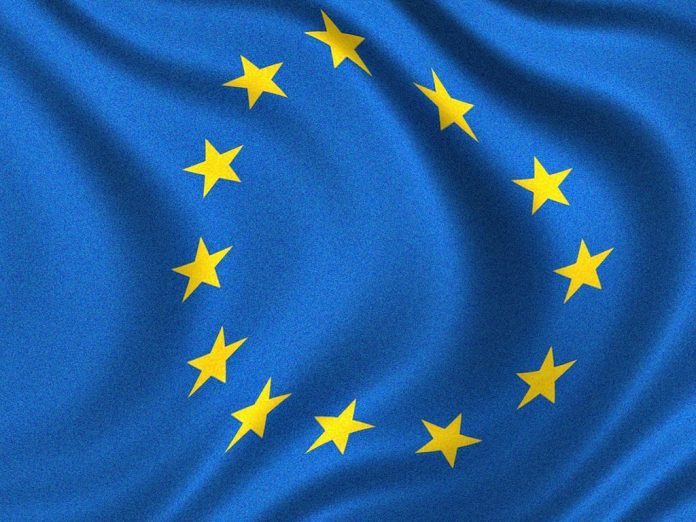MEPs have fought for and achieved increases for an EU budget 2024 aimed at addressing global challenges and supporting young people and research.
On Friday evening, negotiators from the European Parliament and the Council reached a provisional agreement on the 2024 EU Budget, before the deadline of the conciliation period, ending on Monday 13 November at midnight. Parliament secured an additional €666.5 million in funding for its priorities on top of what the Commission had initially proposed in the draft budget.
The preliminary figures are €189.4 billion in commitment appropriations and €142.6 billion in payment appropriations. Detailed figures will be available in due course.
MEPs increased funding for programmes and policies that are crucial for addressing the consequences of the war in Ukraine and global challenges, supporting young people, including young farmers, contributing to the post-pandemic recovery, combating anti-semitism and strengthening efforts towards the green transition, in line with Parliament’s priorities.
Parliament’s negotiators obtained additional funding on top of the Commission’s draft budget for programmes including: the Horizon Europe research programme, +85 million, including €25 million for health research; Erasmus+ with an extra €60 million to support students, in particular those from disadvantaged backgrounds; humanitarian aid, +€250 million; the “Neighbourhood, Development and International Cooperation Instrument” (NDICI – Global Europe) for the EU’s southern and eastern neighbourhood with +€150 million; the EU Civil Protection Mechanism (UCPM), +€10 million; the Creative Europe Programme, +€3 million; the Rights and Values programme, +€4.5 million; the European Public Prosecutor’s Office (EPPO), +€4 million; support for young farmers, +€20 million; the Connecting Europe Facility – transport strand -, which funds the construction of high-quality and sustainable trans-European transport and energy networks, +€30 million; the environment and climate action LIFE programme, +€20 million; the Asylum, Migration and Integration Fund with a €7.5 million top-up; the Border Management and Visa Instrument with +€2.5 million; the Internal Security Fund, +€7 million; Military Mobility, +€10 million, and the financing of social prerogatives, dialogue and training for workers, with a +€2 million top-up.
Revision of the EU’s long-term budget
While reaching a consensus on the 2024 budget, MEPs anticipate that an agreement on the mid-term revision of the EU’s long-term budget (MFF, Multiannual Financial Framework) will be attained in Council by the end of the year. This will pave the way for substantial additional allocations in early 2024 through an amending budget to be proposed by the Commission. The planned MFF top-up aims to provide medium-term support to Ukraine, enhance flexibility and crisis response capabilities, bolster the EU’s strategic autonomy in 2024, and strengthen its efforts in areas such as migration and external policy.
“The budget for 2024 is a budget in difficult and uncertain times. To meet our citizens’ expectations and live up to the new challenges such as keeping up with the consequences of the wars fought in the EU’s vicinity, the EU budget needs to adapt accordingly. The brutal terrorist attack by Hamas against Israel shows us once again that the world around our Union keeps on changing. The resulting surge in antisemitism is affecting countries all over Europe. Therefore, I also particularly welcome the inclusion of additional funding to combat antisemitism in our agreement,” said Johan Van Overtveldt (ECR, BE), Chair of the Committee on Budgets. “This agreement on the budget 2024 is just the first step. Parliament is prepared to discuss the proposed revision of the current budgetary framework to prepare the EU for the future and demonstrate to our citizens that the Union can respond effectively,” he added.
“With tonight’s budget agreement, we are delivering on our citizen’s expectations: Horizon, Erasmus+, health, young farmers and environment, security, humanitarian aid, and for our Southern and Eastern Neighbourhood,” stressed Siegfried Mureșan (EPP, RO), general rapporteur for the EU budget 2024 (for section III – Commission). “We have ensured a bigger and stable budget for the upcoming year. Beneficiaries of EU funds now have the security of upcoming funding throughout 2024. We shall now swiftly also agree on the revision of the multi-annual financial framework to provide reserves for any unforeseen developments that might occur in the upcoming years,” he concluded.
“Despite of numerous constraints, we continue to provide EU institutions with resources to ensure they are equipped to fulfil their mandate and functions in the service of EU citizens. Rising geopolitical challenges requires a more assertive EU, therefore we welcome the reinforcement of the European external action,” said Nils Ušakovs (S&D, LV), rapporteur for the other sections.
Once the Council formally adopts the compromise, it will be discussed in the Committee on Budgets on Thursday (16 November), then voted on in plenary in the European Parliament (during the November session in Strasbourg) and signed into law by its President.
Around 94% of the EU’s budget benefits citizens, regions, cities, farmers and businesses.

